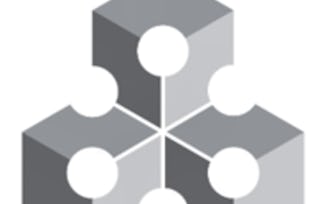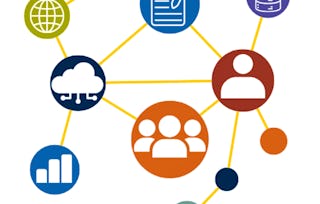Learn how to model social and economic networks and their impact on human behavior. How do networks form, why do they exhibit certain patterns, and how does their structure impact diffusion, learning, and other behaviors? We will bring together models and techniques from economics, sociology, math, physics, statistics and computer science to answer these questions.

Social and Economic Networks: Models and Analysis

Social and Economic Networks: Models and Analysis

Instructor: Matthew O. Jackson
74,606 already enrolled
759 reviews
Skills you'll gain
Details to know

Add to your LinkedIn profile
20 assignments
See how employees at top companies are mastering in-demand skills

There are 8 modules in this course
Examples of Social Networks and their Impact, Definitions, Measures and Properties: Degrees, Diameters, Small Worlds, Weak and Strong Ties, Degree Distributions
What's included
12 videos3 readings3 assignments
Homophily, Dynamics, Centrality Measures: Degree, Betweenness, Closeness, Eigenvector, and Katz-Bonacich. Erdos and Renyi Random Networks: Thresholds and Phase Transitions
What's included
11 videos3 readings3 assignments
Poisson Random Networks, Exponential Random Graph Models, Growing Random Networks, Preferential Attachment and Power Laws, Hybrid models of Network Formation.
What's included
12 videos3 readings4 assignments
Game Theoretic Modeling of Network Formation, The Connections Model, The Conflict between Incentives and Efficiency, Dynamics, Directed Networks, Hybrid Models of Choice and Chance.
What's included
15 videos3 readings2 assignments
Empirical Background, The Bass Model, Random Network Models of Contagion, The SIS model, Fitting a Simulated Model to Data.
What's included
12 videos3 readings3 assignments
Bayesian Learning on Networks, The DeGroot Model of Learning on a Network, Convergence of Beliefs, The Wisdom of Crowds, How Influence depends on Network Position..
What's included
9 videos3 readings2 assignments
Network Games, Peer Influences: Strategic Complements and Substitutes, the Relation between Network Structure and Behavior, A Linear Quadratic Game, Repeated Interactions and Network Structures.
What's included
10 videos4 readings2 assignments
The description goes here
What's included
1 assignment
Instructor

Offered by
Explore more from Economics
 Status: Preview
Status: PreviewUniversity of Pennsylvania
 Status: Free Trial
Status: Free TrialUniversity of California, Davis
 Status: Free Trial
Status: Free TrialJohns Hopkins University
 Status: Free Trial
Status: Free TrialUniversity of Michigan
Why people choose Coursera for their career

Felipe M.

Jennifer J.

Larry W.

Chaitanya A.
Learner reviews
- 5 stars
84.71%
- 4 stars
12.77%
- 3 stars
1.44%
- 2 stars
0.13%
- 1 star
0.92%
Showing 3 of 759
Reviewed on Jun 5, 2020
Interesting survey of modern network theory, from Erdos-Renyi random graphs, to SIS ("flu") models, and games on networks. Rather academic at times, without the rigour.
Reviewed on Sep 3, 2016
The course is a helpful first step in the field of network science. Presenting clearly many complex ideas that are important for understanding current research.
Reviewed on Oct 10, 2020
Very important course. My suggestion to the Prof. if he can increase the course length and include more details that would be much better or he can come up with advance course on the same series.

Open new doors with Coursera Plus
Unlimited access to 10,000+ world-class courses, hands-on projects, and job-ready certificate programs - all included in your subscription
Advance your career with an online degree
Earn a degree from world-class universities - 100% online
Join over 3,400 global companies that choose Coursera for Business
Upskill your employees to excel in the digital economy
Frequently asked questions
To access the course materials, assignments and to earn a Certificate, you will need to purchase the Certificate experience when you enroll in a course. You can try a Free Trial instead, or apply for Financial Aid. The course may offer 'Full Course, No Certificate' instead. This option lets you see all course materials, submit required assessments, and get a final grade. This also means that you will not be able to purchase a Certificate experience.
When you purchase a Certificate you get access to all course materials, including graded assignments. Upon completing the course, your electronic Certificate will be added to your Accomplishments page - from there, you can print your Certificate or add it to your LinkedIn profile.
Yes. In select learning programs, you can apply for financial aid or a scholarship if you can’t afford the enrollment fee. If fin aid or scholarship is available for your learning program selection, you’ll find a link to apply on the description page.
More questions
Financial aid available,

